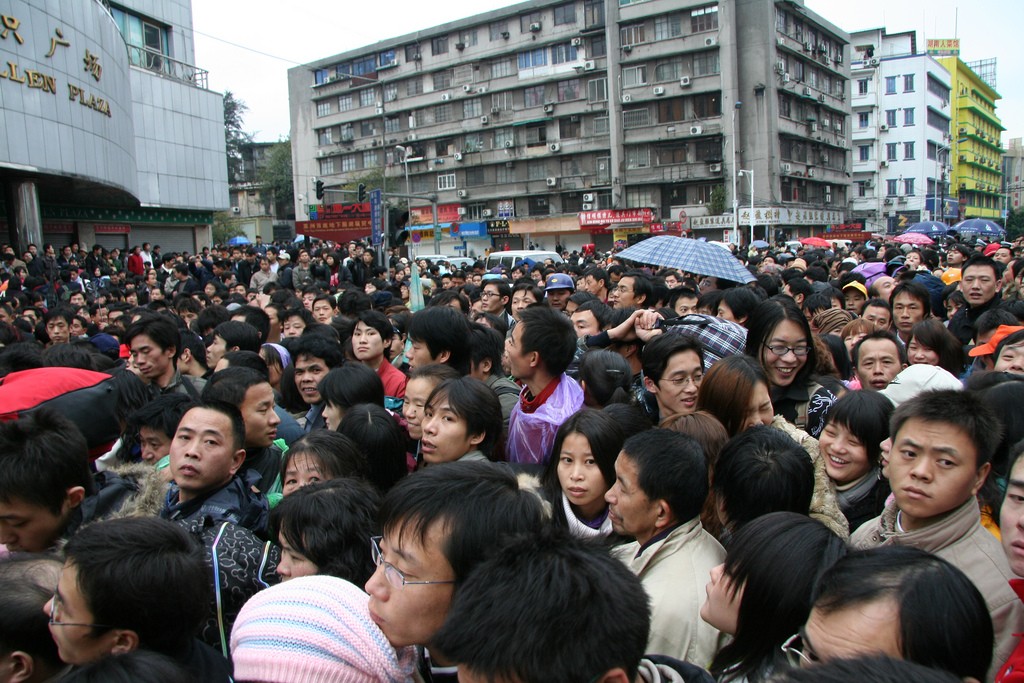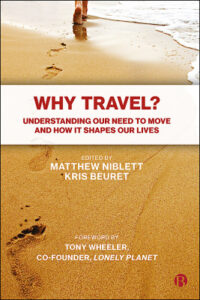The world’s largest annual human migration – travelling home for Lunar New Year

Over 100,000 people were stranded at Guangzhou station in China as unusually cold weather caused delays over Lunar New Year – the busiest travel time of the year. Image: “Crazy crowds, Guangzhou train station” by Tom Booth licensed under Creative Commons via flickr.
10th February 2016
Millions of people in East Asia have been travelling home to celebrate Lunar New Year with their families, making this the largest annual human migration the world has ever seen. Across China, Japan, Korea and other East Asian countries, people are taking to the roads, rails and air in their millions: in South Korea some 70 per cent of the population are estimated to be travelling back to their home towns¹ and in China, where the new year is part of the 40-day spring festival, an estimated 2.9 billion journeys will be made over the festival period.² These huge numbers mean that roads are jammed and rail tickets are often booked up months in advance. Unusually cold weather in China this year has resulted in delays, putting extra strain on the system and leaving over a hundred thousand people stranded at Guangzhou’s main station.³
It has long been traditional for people to travel back to their hometown for the Lunar New Year celebrations but with ever-increasing numbers of people moving away from their places of birth to work in large cities, the number of people on the move at New Year has grown to these epic proportions. There are signs, however, that changing attitudes are altering people’s travel choices. In South Korea, a country with a strong Confucian tradition in which ancestral rites and rituals of filial piety form an important part of the New Year holiday, there is evidence that some people are resisting the pull back to their hometown and opting instead to use the public holidays as a chance to travel abroad. One travel company has seen travel packages to Hawaii over the New Year break double compared to only a year ago. Yet others are choosing to stay at home rather than travel at all; those who live in Seoul, in particular, are taking advantage of the rare opportunity to enjoying a relatively uncrowded city, rather than joining the standstill traffic on the country’s highways.
Despite these moves against tradition by a few, it doesn’t look like the largest annual human migration will be coming to a halt soon. Travelling home for the celebration of festivals is a familiar practice across many cultures (even a theme for a number of Christmas pop songs) and the desire to see loved ones and to be in the place of our birth has been a strong motivation for travel across the ages. The Independent Transport Commission believes that understanding why we travel is vital if we are to anticipate future travel behaviours and create travel experiences that are more satisfying. The ITC’s Why Travel? project explores the various and complex motivations that shape our travel behaviours from a variety of perspectives across the sciences and humanities. Our aim is to better understand human travel and – crucially – to inform better decision-making about travel in to the future. For more information on the project, including expert views and current research, see www.whytravel.org.
¹ http://www.koreaherald.com/view.php?ud=20160205000819
² https://www.washingtonpost.com/world/asia_pacific/china-braces-for-29-billion-trips-made-during-new-year/2016/01/30/64147140-c727-11e5-b933-31c93021392a_story.html
³ http://www.bbc.com/news/world-asia-china-35468790


